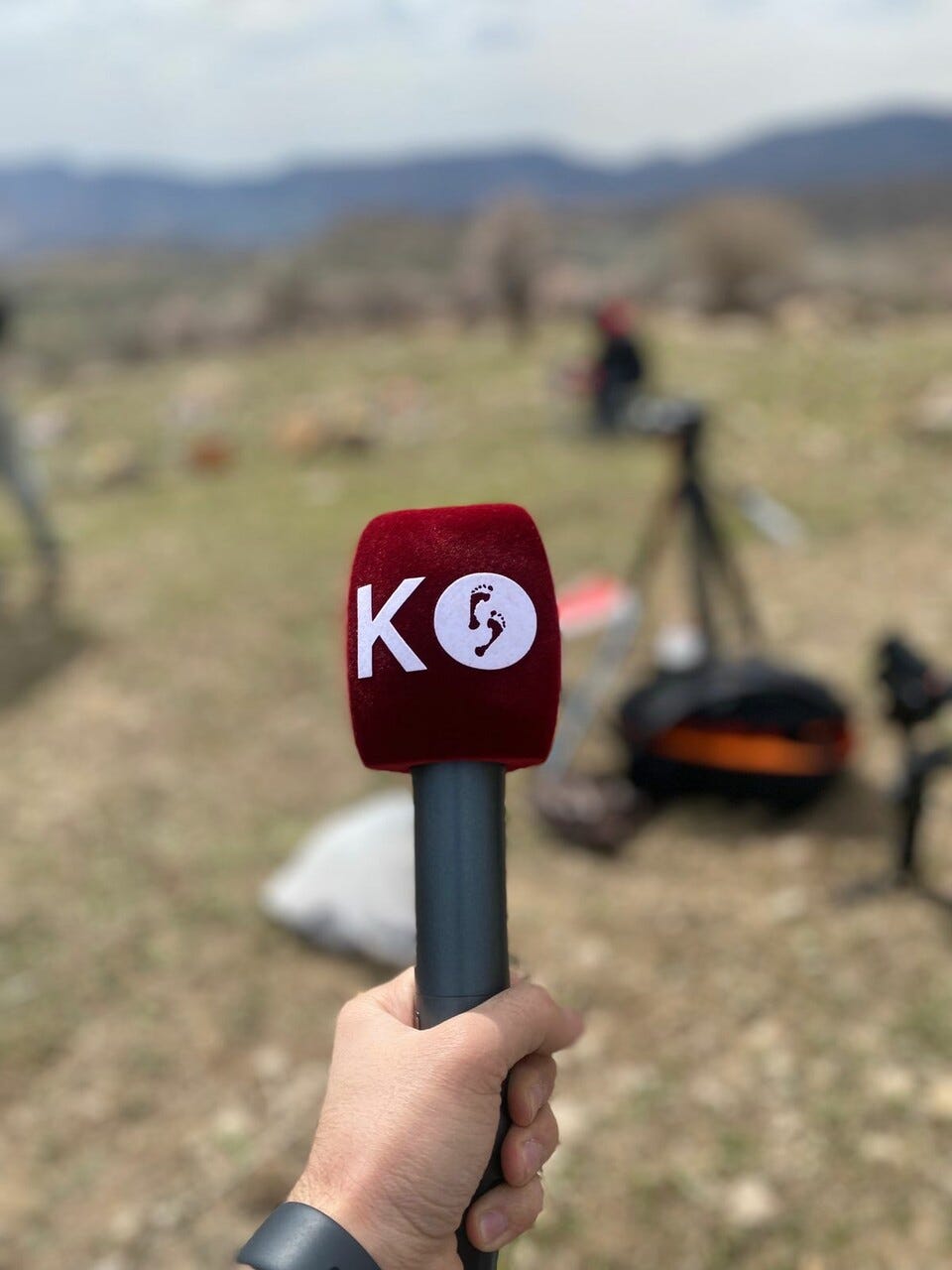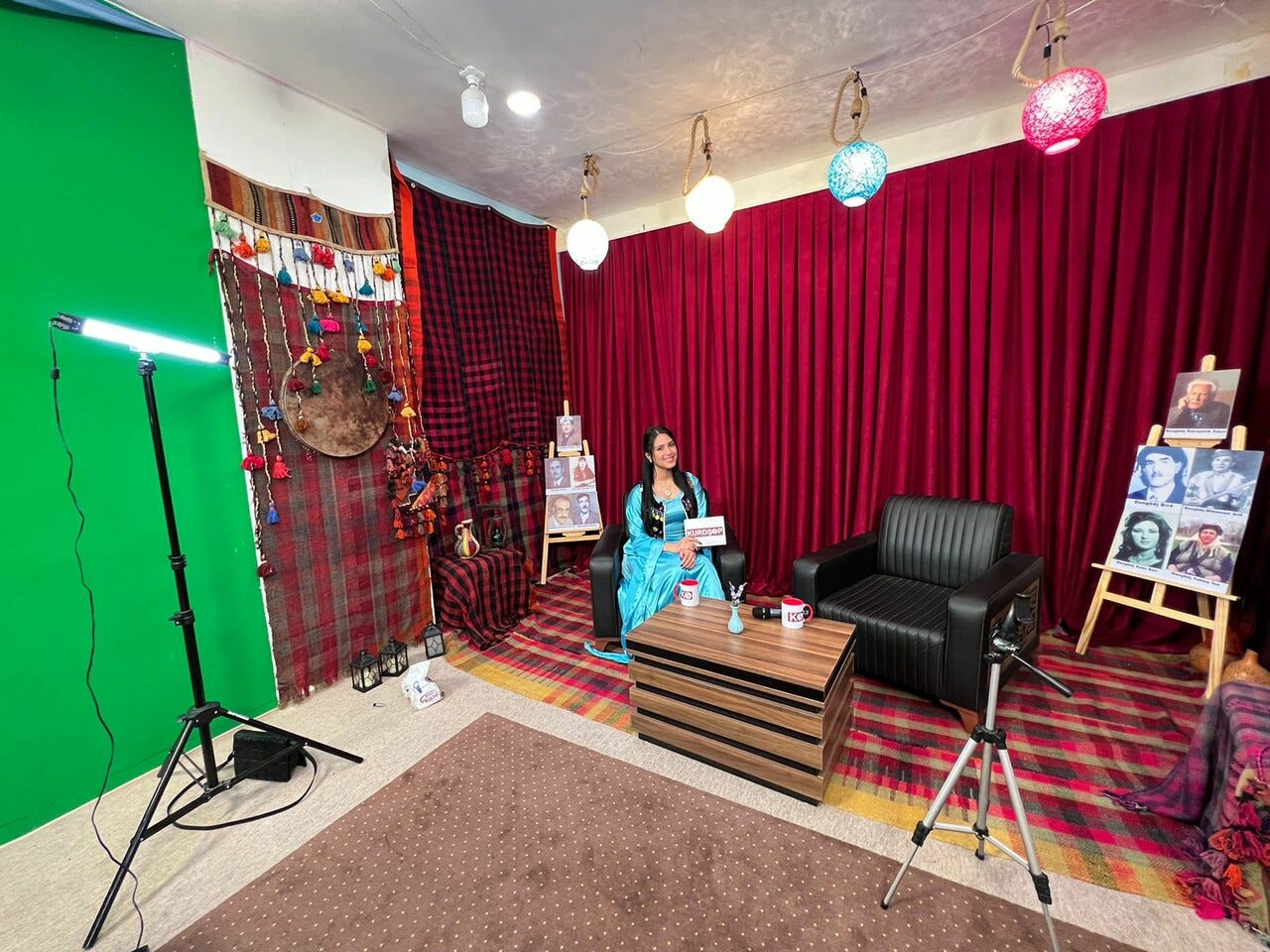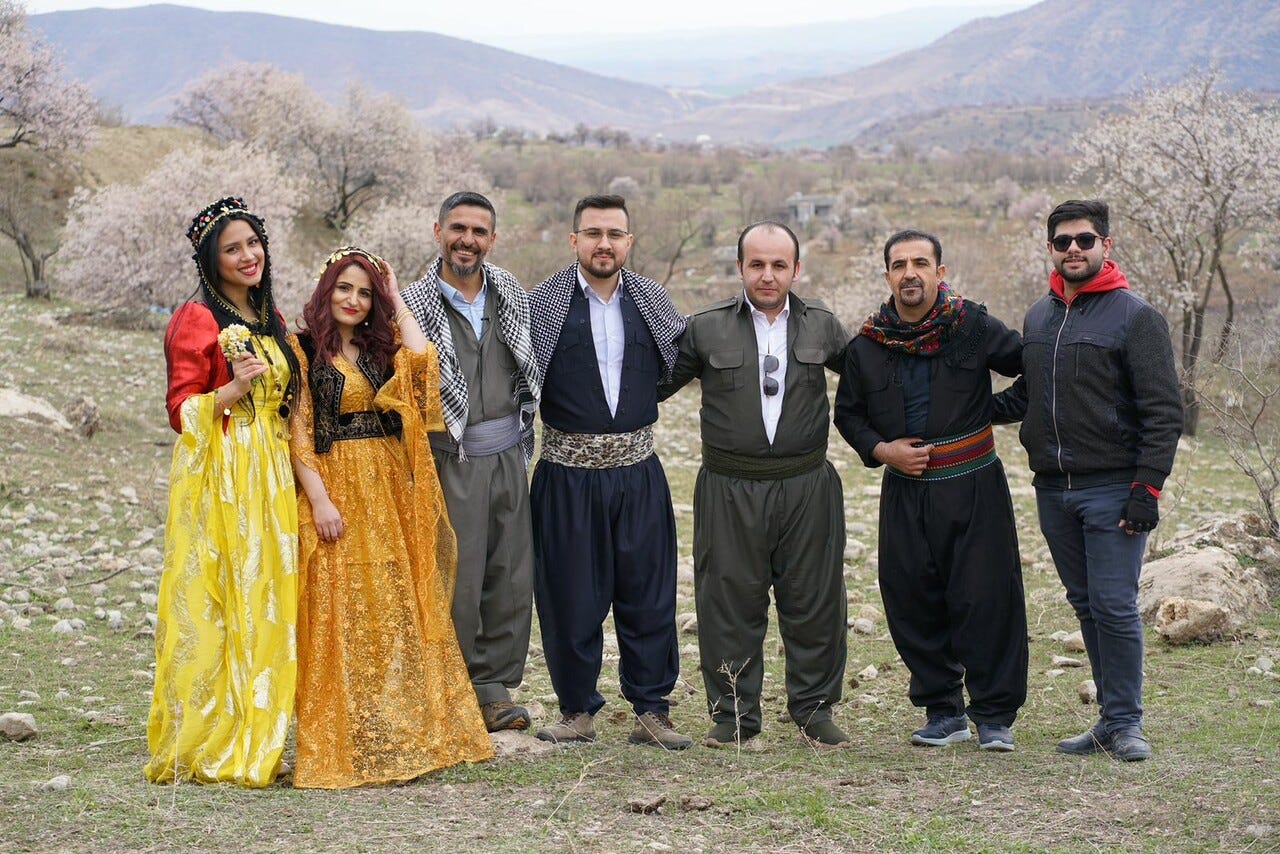‘This is how we fight’ – Kurdish Culture for a New Generation
Walat Salih is championing Kurdish language, history and heritage on his platform Kurdshop.
It was during a trip to the Iraqi city of Kirkuk two years ago that Walat Salih became concerned for the future of his people. “Everyone was speaking Arabic, and when I asked them why they said we don’t learn Kurdish in school,” he recalls. Oil-rich Kirkuk, which is claimed by both the Iraqi government and the autonomous Kurdistan Regional Government (KRG) in northern Iraq, is home to a sizeable Kurdish population and many Kurds in the region see it as itheir Jerusalem.
For Salih, witnessing the erasure of his language from the historic city was a turning point, and he decided to launch a project that would champion Kurdish culture and push back against decades of social and political oppression. “Throughout our history, enemies have attacked us, and one of the first things they target is our language,” he says, pointing to the omission of Kurdish from school curriculums in Syria, Turkey and Iran.
Attempts in these countries to clamp down on the minority group’s cultural expression have made some Kurdish people feel ashamed of speaking in their native tongue, he continues. “Countries don’t want people to know about Kurdish traditions because they are afraid that people will stand up and say we have a language, culture and history, why are we under your flag?”
His response to this is Kurdshop, an online platform that celebrates Kurdish culture through television programs covering the history, language and traditions of a people who have been forced to fight for their place in the region they have occupied for thousands of years. There are between 30 and 45 million Kurds worldwide, making them among the world’s largest peoples without a sovereign state, with most living in the mountainous swathe that straddle present day Turkey, Syria, Iran and Iraq.
Despite being one of the largest ethnic groups in the Middle East, accounting for 20 percent of the total population in both Turkey and Iraq, and 10 percent of the total population in both Syria and Iran, the Kurds have long been sidelined, their demands largely unmet by central governments. This predicament dates back to the boundaries drawn after the fall of the Ottoman Empire, which turned the Kurdish community into ethnic minorities scattered across new nation-states created in the wake of World War II.
The group’s history of marginalization and persecution, with tens of thousands killed in successive genocides perpetrated by Saddam Hussein’s Baathist regime in the 1980s and 1990s, and Isis on their murderous rampage through the Kurdish heartland of Sinjar in 2014, has reinforced the Kurdish quest for independence in various forms. For some Kurds, this extends to a unified Kurdistan spanning all four countries, while others focus on gaining political recognition and greater cultural freedoms that allow them to live in peace.
Irrespective of broader political ambitions, the desire for free expression and a sense of security after decades of persecution underpins many Kurdish movements, including Salih’s plans for Kurdshop to be a platform for community celebration. “We don’t want to fight… look at our history, the Kurdish people always die. Now, in East Kurdistan, people say we just want peace and freedom.”
Kurdshop also runs Kurdish language lessons for children and releases around four weekly programs exploring all aspects of Kurdish culture and heritage. “We have our language, our geography… a rich art and musical heritage… we have to show this to our children and say that’s our history, that’s our art, that’s our land and everything about us. It’s very important we pass this to the next generation.”
Salih is using an Innovation Hub grant from Ideas Beyond Borders to ramp up program production and improve the Kurdshop website for a growing audience.
“Kurdshop isn’t interested in starting problems, they simply want to celebrate Kurdish culture. Helping those who simply want to create a place for all people to share their ideas, and to have a place of their own where they can peacefully promote and embrace their own way of life is what IBB was created to do,” says Faisal Saeed Al Multar, founder and president of Ideas Beyond Borders.
For now, new releases are on temporary hold out of respect for the protesters killed in Iran following the death of Mahsa Amini, a 22-year-old Kurdish woman who died in police custody after being arrested for how she wore her hijab. The incident has sparked mass demonstrations against the Iranian regime, with at least 326 people killed in a vicious crackdown by security forces. “Our young people are dying daily,” says Salih, who lives in Iraqi Kurdistan but is originally from Urmia-Salmas, a Kurdish-majority part of Iran.
In the past, Salih has received threats from Iranian authorities for Kurdshop content, but he refuses to back down. “They called on an unknown number threatening to kill me, but I won’t stop because I am working for my people…. We will never stop because this is the best weapon against our enemies – our language, culture, history, and identity. This is how we fight.”






